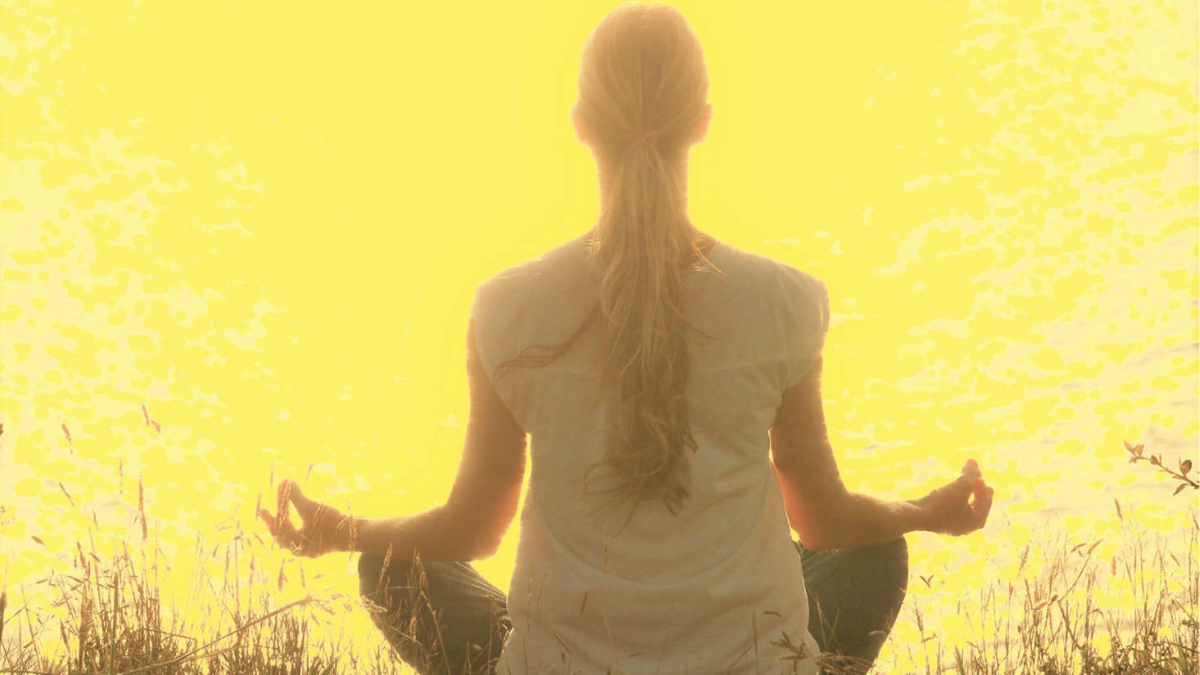


It is our mind that controls the body. We may be feeling tired and weak, but if a situation arises, we suddenly become active. Suppose someone wins a huge sum in a lottery and has to go to the tenth floor of a building to collect the amount, and the lift is not working, what will they do? They will run up the stairs to get the money.
Some years ago, there was an earthquake, and a patient who could barely walk without assistance ran out of the hospital to save himself. What these two examples show is that our mind gives us energy when it is happy or under some kind of compulsion.
The mind also makes us stressed when we think the wrong way.
Conditions in the world are such that people live in fear and worry. No one can be certain about having a long and healthy life. Anything can happen to anyone at any time. This causes uncertainty and insecurity.
What is the root of this insecurity? All our fears and worries are about losing something. Whatever we have, including our body, is ours temporarily. We bring nothing with us when we are born, and acquire many things during the course of life. The one thing that is permanent and indestructible is our self, the soul, the seat of consciousness, which gives life to the body.
Fear of loss arises when we identify ourselves with the body and think that one day we will cease to exist and lose all we have — our loved ones, wealth, and possessions. Once we understand that we are immortal souls who have always existed, playing various roles through successive lives, our attachment to the body and our possessions begins to loosen.
We are sovereign beings free to act as we like. My job is to mind my actions, as they determine the quality of my life in the present and future. But we get caught up with what others are doing, especially their mistakes: “How could they do this?”, “How dare they say that?”
We forget that like us, others are free to do what they want, and we cannot control them. But we have expectations, for respect, cooperation or obedience, and when they are not met, we get stressed.
We also haggle with the plumber, the electrician, the mechanic, over small amounts of money. Why? Due to the same attitude, of getting something, not giving.
In accounting, we are taught that when you get something, it is credit, and when you give, it is loss. But life is different. The law of karma is: as you do, so will be done to you. In other words, the more you give, the more you will be given. Nature gives – the sun radiates heat and light, rivers provide water, trees offer shade, fruits, and shelter to birds. Even inanimate objects — furniture, appliances, vehicles — have value only if they are of use to others.
But humans do the opposite — we always seek to gain. If we adopt the magnanimity of nature, we will begin to experience contentment. The natural instinct of humans is to help others, which is why we get an uplifting feeling, called helper’s high, after doing a good deed. This relieves stress and is said to promote longevity.
However, our natural nature has got perverted. To become large-hearted again, we need to rid ourselves of the things that make us selfish. Vices such as greed, attachment, ego, lust and anger are the root of our sorrow and stress. We can be free of them by remembering who we are — eternal souls, not bodies. This brings about a paradigm shift in our outlook, as we realise that what we see in the world is transitory — we can interact with people and use things, but not own them forever. What endures with me are my qualities as a soul, such as peace, love, happiness, and the blessings I have earned. It is these I need to collect in order to live a fulfilling, stress-free life.
B.K. Brijmohan is Additional Secretary General of the Brahma Kumaris.